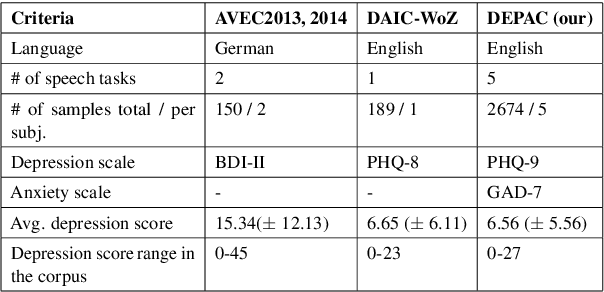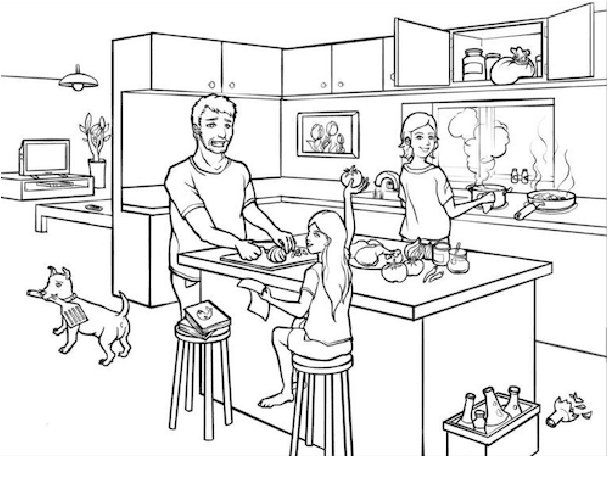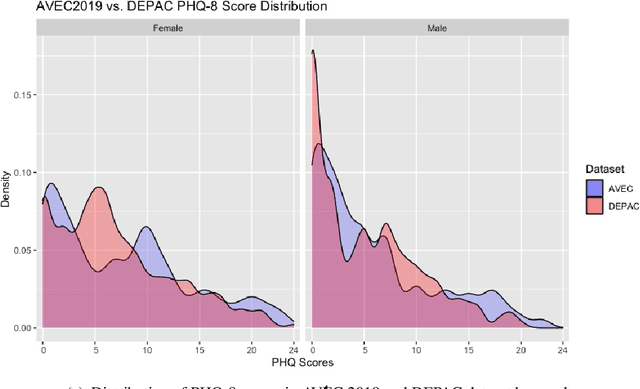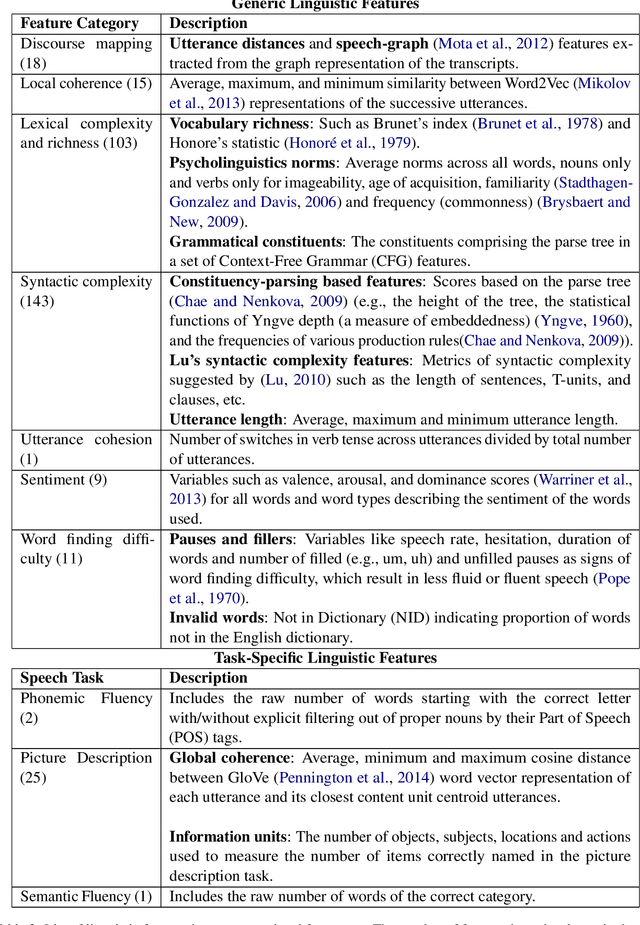Brian Diep
DEPAC: a Corpus for Depression and Anxiety Detection from Speech
Jun 20, 2023



Abstract:Mental distress like depression and anxiety contribute to the largest proportion of the global burden of diseases. Automated diagnosis systems of such disorders, empowered by recent innovations in Artificial Intelligence, can pave the way to reduce the sufferings of the affected individuals. Development of such systems requires information-rich and balanced corpora. In this work, we introduce a novel mental distress analysis audio dataset DEPAC, labeled based on established thresholds on depression and anxiety standard screening tools. This large dataset comprises multiple speech tasks per individual, as well as relevant demographic information. Alongside, we present a feature set consisting of hand-curated acoustic and linguistic features, which were found effective in identifying signs of mental illnesses in human speech. Finally, we justify the quality and effectiveness of our proposed audio corpus and feature set in predicting depression severity by comparing the performance of baseline machine learning models built on this dataset with baseline models trained on other well-known depression corpora.
Multi-modal deep learning system for depression and anxiety detection
Dec 30, 2022

Abstract:Traditional screening practices for anxiety and depression pose an impediment to monitoring and treating these conditions effectively. However, recent advances in NLP and speech modelling allow textual, acoustic, and hand-crafted language-based features to jointly form the basis of future mental health screening and condition detection. Speech is a rich and readily available source of insight into an individual's cognitive state and by leveraging different aspects of speech, we can develop new digital biomarkers for depression and anxiety. To this end, we propose a multi-modal system for the screening of depression and anxiety from self-administered speech tasks. The proposed model integrates deep-learned features from audio and text, as well as hand-crafted features that are informed by clinically-validated domain knowledge. We find that augmenting hand-crafted features with deep-learned features improves our overall classification F1 score comparing to a baseline of hand-crafted features alone from 0.58 to 0.63 for depression and from 0.54 to 0.57 for anxiety. The findings of our work suggest that speech-based biomarkers for depression and anxiety hold significant promise in the future of digital health.
 Add to Chrome
Add to Chrome Add to Firefox
Add to Firefox Add to Edge
Add to Edge